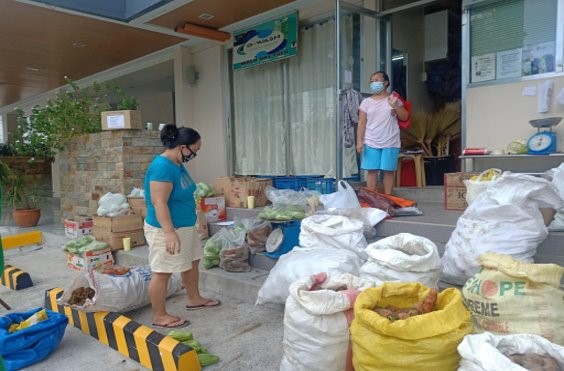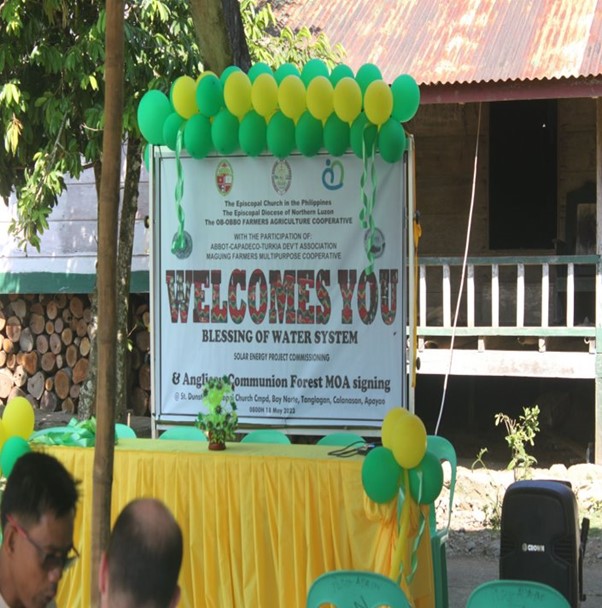AID’s Partner, E-CARE, leads the way in effective, innovative Community Development
At a recent ABM AID Partner Conference, we were reminded of the amazing achievements of our long-time partner, the Episcopal Church of the Philippines (ECP) through their E-CARE Foundation, and particularly its “Community Action for Community Empowerment” program.
More than 10 years ago now, the church switched to an Asset-based focus in their Community Development work (ABCD), meaning that instead of asking communities what they needed, they asked them what strengths and assets they already had that could be built on through further community development. Whilst this was initially challenging – people were unwilling to share knowledge of their community and family assets with strangers. And even within the church, many church leaders, clergy and E-CARE staff were sceptical, believing the communities they worked with did not have any assets.
As E-CARE’s Program Coordinator, Farida Pasiwen-Cawatig, noted at the conference, “It took some time to change attitudes and expectations, both within the church and in the communities, from a ‘needs’ focussed to an ‘assets-based’ approach.”
The church realised that one way to overcome these barriers was to provide the church and the community members with training on how to appreciate and then mobilise their assets. For example, if someone grew camote and taro (varieties of sweet potato), E-CARE provided training in how to turn these staple vegetables into something more valuable, such as crisps.
But, rather than train everyone, E-CARE found it valuable to train core groups both in the church and the communities, so that these people would become assets in themselves, coordinating the activities and acting as liaison between the communities and E-CARE. Starting with small but enthusiastic groups of people who could see the potential of an Assets-based approach, this core group gradually got more communities involved.
A year or two later, through E-CARE’s experiences of working with retrenched garment makers who live in poor urban communities, E-CARE came up with their Receivers to Givers policy. Under this way of thinking, funds provided to community groups to help them “step up” were then provided by the original group of “Receivers” to others to be given a helping hand. The “Receivers” became “Givers”.
The twin approaches (ABCD and Receivers to Givers) were later also applied to disaster response and recovery, where, for example, the assets of people not affected by a typhoon or similar disaster (such as food crops) were bought by E-CARE and given out to disaster-affected communities. When E-CARE bought land to support the re-housing of 80 fishing families who lost their homes during Typhoon Haiyan, they first trained the people in making their own mudbricks and in carpentry skills, and then enabled them to repay the cost of the land back to support others affected by later disasters, including Typhoon Mangkhut in 2018, Typhoon Rai in 2021 and Typhoon Nalgae in 2022.
Now, in 2023, E-CARE Post-Pandemic Livelihoods Recovery Project is moving more and more of the communities they work with onto the Receivers to Givers approach, including the communities they work with in Emergency Response. Almost half of those (42%) have now transitioned become “Receivers to Givers”. The communities themselves do most of the organising and liaising with E-CARE and have developed their organisation-wide visions and strategic plans. Ten of the organisations have developed additional enterprises, 110 farmers from among the organisations are supplying the marketing program of E-CARE at reasonable prices and 87 non-farm producers are also able to sell their products. Some communities are developing their own solar-powered deep wells to access water in a climate-friendly manner.
Within communities, interested members form their own organizations with their own officers, policies and plans. These organizations, through the leadership of their officers, are the decision makers, implementers and are in charge of project monitoring. The local ECP churches assist the communities by conducting Bible Studies and by supporting them in values formation activities, which they can use for their advocacy.
Field staff commented on the sustainability of the project and share some of the current challenges:
Laiyan said, “The sharing of good practices [of some communities with] other community partners… motivates and inspires them to do their best in their organizations.
Aldwin said, “The receiver to givers cycle is the core values of our programs. If our [community] partners will want to participate in our program, if they do not return what they received, they may deprive the opportunities of other organization. [But] in our experience, those assisted organizations need more finances as they grow bigger because of the demand for support also get bigger. Like if we assisted 300,000 Pesos to the group of 15 members, later on of they have more than 30 members, they request also bigger amount like 500,000 or more because it gave bigger opportunities to entrepreneurial activities.
But these challenges have their own community-led solutions, as Zena noted, “[The] savings and share capital program is being done by the [community] partners to raise their own capital funds.”
AID is proud to have accompanied E-CARE on this incredible journey.
ABM AID would like to thank those who support this project through prayer and giving. We also thank the Australia Government Aid Program for their continuing support.
We have committed to contribute $1 for every $5 we receive from the Australian Government. This means that every donation you make to this project will be combined with funding from the Australian Government to reach more people. Your donation will allow us to extend this program.
–
AID wishes to thank all who support this project through prayer and/or donations.

The E-CARE shop in Manila buys produce from the farmers participating in E-CARE projects. © E-CARE Used with permission.
